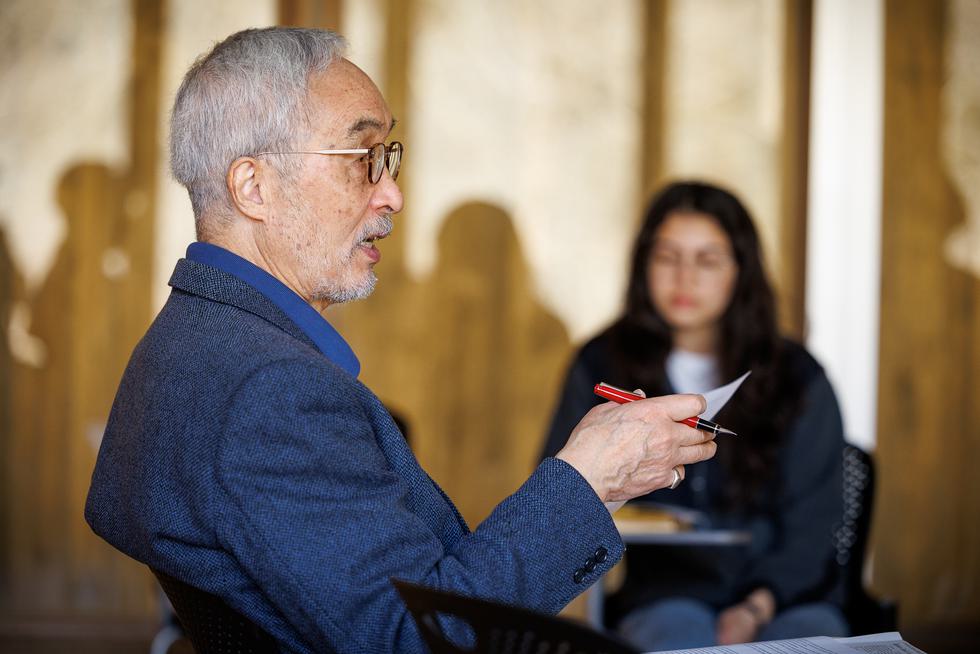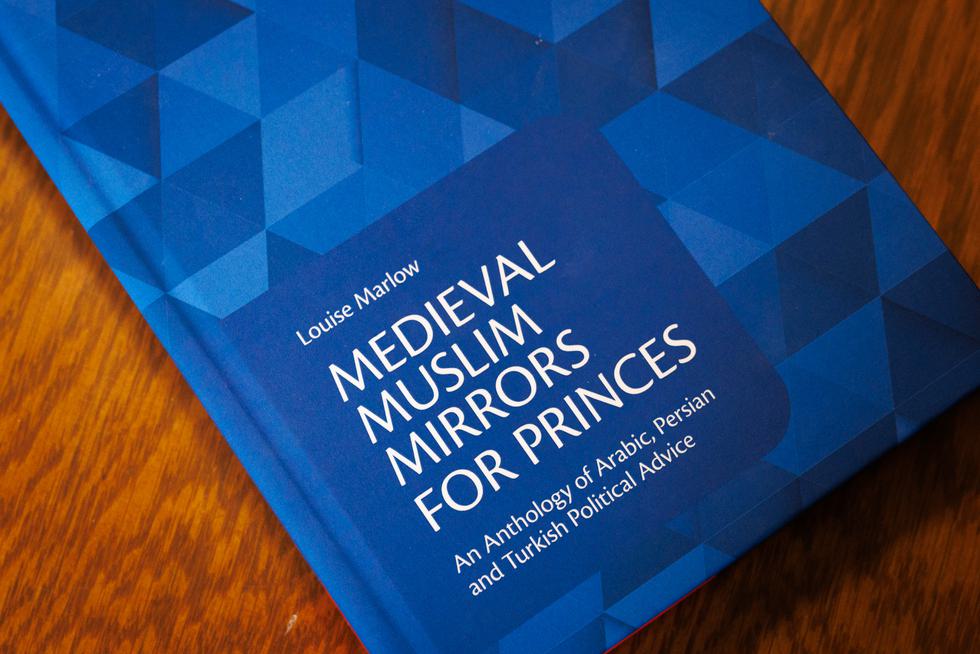Religious Studies
Academic Department Introduction
The study of religion at Wellesley is historically grounded and deeply interdisciplinary. Many of our courses explore the texts and contexts associated with major religious traditions: Buddhism, Hinduism, the religions of China and Japan, Judaism, Christianity, and Islam. Other courses adopt thematic and theoretical approaches. Conceiving of religion as a central element in human culture, we study the complex intersections among religion and the visual arts, architecture, music, theater and dance, politics and government, law and ethics, popular culture, philosophy, and science. In addition, our students engage in explorations of social justice—from perspectives drawn from inside and outside religious traditions.
The department works closely with several related programs, including the programs in East Asian studies, Jewish studies, Middle Eastern studies, and South Asia studies. Every member of the department is affiliated with at least one interdepartmental program, and we frequently collaborate in guiding students’ work, programming, and special events.
Learning goals
Describe and interpret one of the great religious traditions or a central theme in two or more traditions.
Analyze and assess sacred texts and religious writings, including their specialized rhetoric, forms, and contexts.
Identify and think critically about the roles of religion in historical contexts and intersections of religion with other cultural phenomena.
Programs of Study
Religious studies major and minor
Students employ critical methods used in contemporary scholarship on religion.
Course highlights
Japanese Religion and Culture
REL255
Constancy and change in the history of Japanese religious thought and its cultural and literary expression from the prehistoric "age of the gods" to contemporary Japan. An examination of Japanese indebtedness to, and independence from, Korea and China, assimilation and rejection of the West, and preservation of indigenous tradition. Topics include: Shinto, distinctively Japanese interpretations of Buddhism, neo-Confucianism, their role in modernization and nationalism, Western colonialism, and modern Japanese thought as a crossroad of East and West.
-
Archaeology of the Biblical World
REL242
An examination of the ways in which archaeological data contribute to the understanding of the history of ancient Israel and the Jewish and Christian communities of the Roman Empire. We shall explore such archaeologically dependent topics as the origins of ancient Israel, goddess worship in Iron Age Israel, Qumran and the Dead Sea Scrolls, Galilee in the time of Jesus, Roman-era leadership positions of Jewish and Christian women, and monumental architecture in Jerusalem. We shall also consider the complex relationships between archaeology and Biblical Studies and archaeology and nationalism. In addition to the Davis Museum, visits to the Harvard Museum of the Ancient Near East and the Museum of Fine Arts are tentatively planned. -
Christianity in Eleven Objects
REL115
A study of the Christian religion through eleven objects that represent key beliefs, rituals, institutions, and spiritualities of the tradition: a cross, flame, water, bread and wine, a crown, an icon, a monastery, a cathedral, printed bibles and hymnals, a meetinghouse, and a megachurch. We will take one week of the term to examine each of these objects and their complex meanings in Christian culture. Our approach will feature historical and thematic perspectives and engage with a combination of primary source texts, secondary interpretive readings, visual images, sound recordings, and videos. No previous knowledge of Christianity is assumed.
Research highlights
-
Professor Stephen Marini and student interns completed a three-year digital humanities mapping project in which they compiled a census of all religious congregations in colonial and revolutionary America from 1725 through 1790 and prepared this data for mapping.
-

Professor T. James Kodera’s research focuses on Watsuji Tetsuro’s work on Dogen (1200–1253), a Zen monk/priest who brought the Soto (Chinese: Ts’ao-tung) School of Zen out of China. Watsuji was a 20th-century Japanese philosopher, ethicist, and cultural historian whose book, Shamon Dogen, was instrumental in securing Dogen’s status in the larger intellectual world in Japan.
-

Professor Louise Marlow’s recent publications include Medieval Muslim Mirrors for Princes: An Anthology of Arabic, Persian and Turkish Political Advice (Cambridge University Press, 2023). Her current research explores translations between Arabic and Persian in 14th-century Iran.
Opportunities
-
Elisabeth Luce Moore ’24 Summer Research Internships in Religion
Students conduct research on a project proposed by individual Religious Studies Department faculty members. Typical projects include bibliographic research, online database investigations, archival work in campus and local libraries, special computer work such as mapping, and, occasionally, translation.
-
Severinghaus Summer Internship Program in Ministry/Human Services
Funding from the department enables students to engage in research or hands-on work through unpaid positions with domestic or international humanitarian or social action agencies, charitable or religious organizations, or policy-based institutes. Recently funded projects include work with the Asian & Pacific Islander Coalition on HIV/AIDS, the Holocaust Museum LA, the Street Child Project, and Wheelchairs of Hope.
Beyond Wellesley
Beyond Wellesley
The intellectual breadth and depth of religious studies help prepare our graduates for graduate-level education in many fields, including business, law, medicine, and public service, and for many careers. Recent graduates have found employment in the nonprofit/NGO sectors, investment or portfolio management, K–12 and other types of education, the performing and fine arts, social assistance, journalism, and media and publishing.
Recent Employers






For more
Our newsletter
Published annually, our department newsletter features recent or upcoming classes, students’ first-hand accounts of summer internship experiences, interviews with faculty and alums, and more.
106 Central Street
Wellesley, MA 02481










